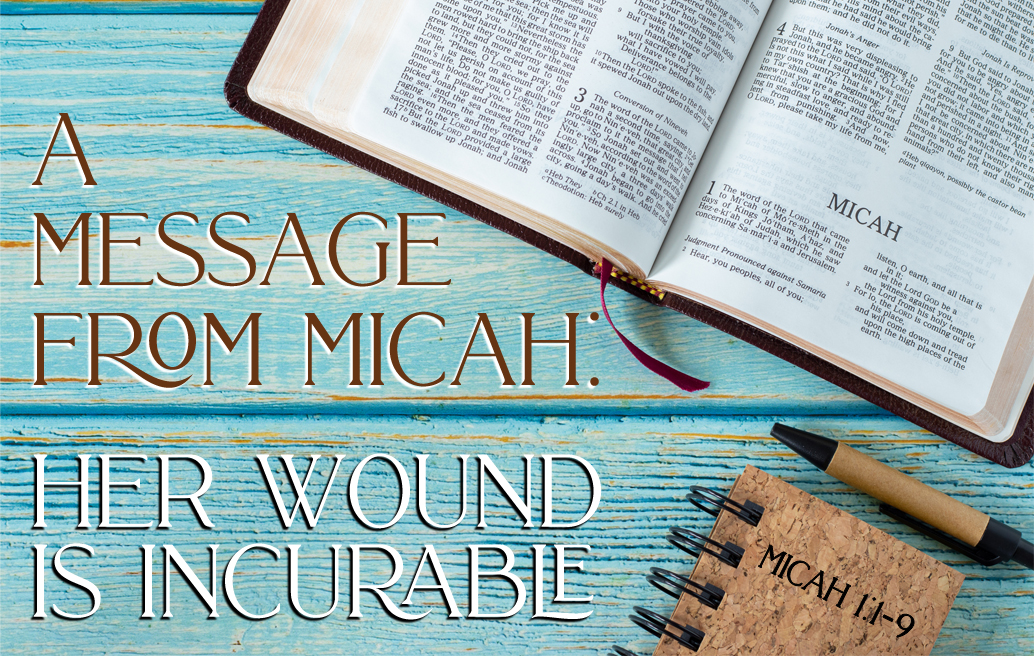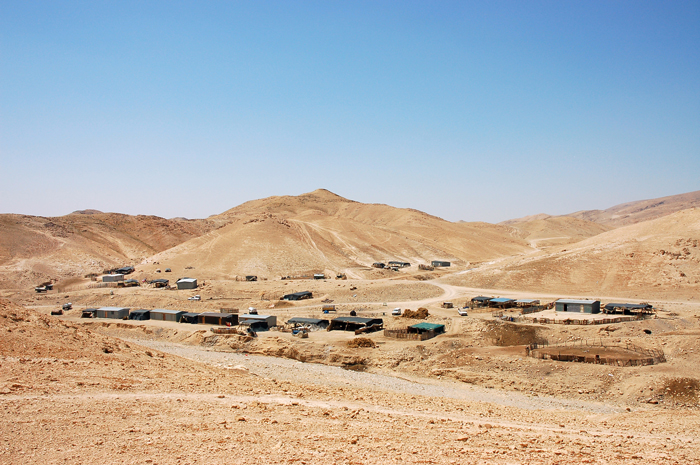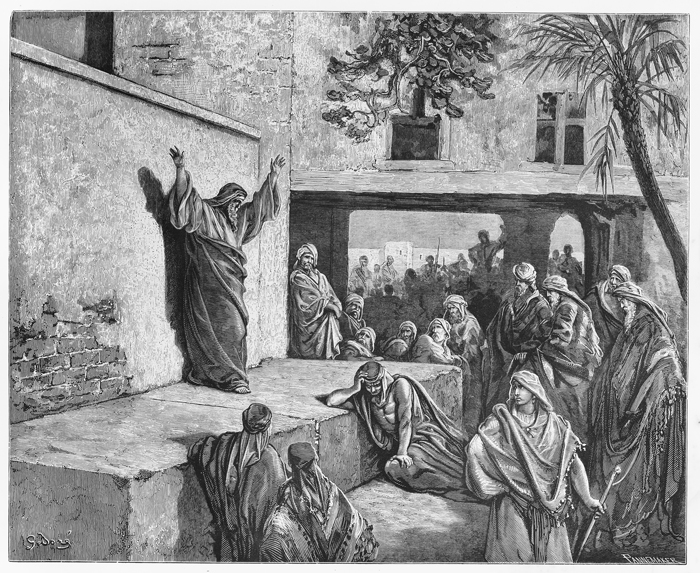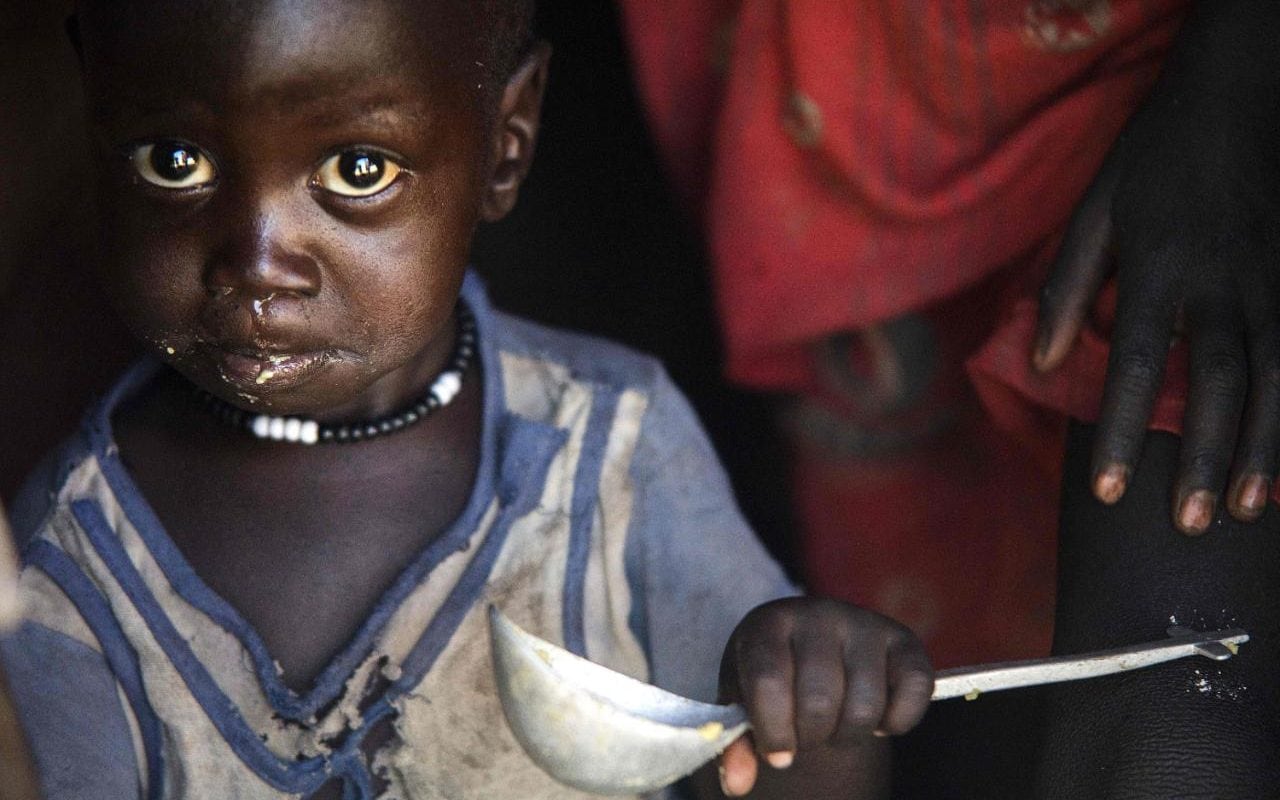
|
This is a non-WLC article. When using resources from outside authors, we only publish the content that is 100% in harmony with the Bible and WLC current biblical beliefs. So such articles can be treated as if coming directly from WLC. We have been greatly blessed by the ministry of many servants of Yahuwah. But we do not advise our members to explore other works by these authors. Such works, we have excluded from publications because they contain errors. Sadly, we have yet to find a ministry that is error-free. If you are shocked by some non-WLC published content [articles/episodes], keep in mind Proverbs 4:18. Our understanding of His truth is evolving, as more light is shed on our pathway. We cherish truth more than life, and seek it wherever it may be found. |

Any preacher tasked with presenting the word of Yahuwah to an audience other than his local congregation will, at one time or another, be confronted with the issue of the relevance of his message. What audacity does an outsider to a community have to say the word of Yahuwah to people who consider themselves to be children of Yahuwah, especially when it is a not-so-pleasant message?
The prophet Micah faced such a challenge, for he was an outsider to Jerusalem, where he proclaimed the word of Yahuwah. If he had been from Jerusalem, he would have been identified as "Micah, the son of such and such a person." Isaiah prophesied in Jerusalem at about the same time that Micah did; being from Jerusalem, he was identified as "Isaiah son of Amoz." On the other hand, Micah came from Moresheth, a small village in the hill country of Judah, about twenty to twenty-five miles southwest of Jerusalem. His identifying mark was, therefore, not his parentage but his hometown. Micah went to Jerusalem to speak words to its people and leaders that were not his own. Micah did not speak words he made up himself. Micah spoke not merely out of the depths of his understanding. He did not speak out of spite for the rich and powerful. He did not speak out of envy and jealousy for the affluent of society. He preached out of concern for the nation and its people to urge them to change their ways to avert Yahuwah's wrath. When Micah spoke of judgment, disaster, and destruction, it was not his wishful thinking. Still, it was the word of Yahuwah that came to him concerning Samaria and Jerusalem during the reigns of Jotham, Ahaz, and Hezekiah. Samaria and Jerusalem were the capital cities of the northern kingdom of Israel and the southern kingdom of Judah, respectively. The two cities were the two nations' centers of authority and power in the days of Micah. These two cities represented their nations, and, therefore, the words directed at these cities were also addressed to the nations of Israel and Judah. As the centers of influence, these cities were responsible for what happened in the rest of their nations. As it were, when Samaria and Jerusalem sneezed, Israel and Judah caught a cold. Reference to the reigns of Jotham, Ahaz and Hezekiah speaks volumes of what was happening at the time of the prophecy. The reigns of these three kings of Judah lasted for fifty-five years. Only a generation before this time, there had been political peace and stability in Israel and Judah, accompanied by a vibrant and buoyant economy that had resulted in great wealth and prosperity. During the days of Jotham, Ahaz, and Hezekiah, the people were still enjoying the prosperity, wealth, affluence, and luxury of times gone by.

Unfortunately, though, there was great inequity in the distribution of wealth. It was a time of great abundance and yet a time of great need. It was a time of great affluence and yet great deprivation. It was a time of great gains and yet great losses. It was a time of great wealth and yet a time of great poverty. It was a time of great joy and yet a time of great sorrow. It was a time of great contrasts.
This was the time when the word Yahuwah came to Micah-the vision he saw. Micah saw both physically and spiritually. He saw what went on around him (which everyone else could see) and what Yahuwah was about to do as a result of that (which no one else could see). Micah saw the effects of an economic revolution-the influx of material prosperity upon a people. He saw the wealth of the majority, vested in their lands and homes, taken away from them as they were dispossessed of their properties through unjust means by the powerful minority.

Callous greed and cruelty marked the conduct of men who should have behaved humanely. The rich were so greedy for wealth that they stooped to the lowest level to grab and scrape off even the little leftovers from the lowest of the land. They stopped at nothing to feed their covetousness. He saw the powerful minority enjoying the pleasures of material prosperity while the powerless majority was crushed physically and emotionally by poverty. Micah saw distressed people oppressed by the agony of hopelessness. Unfortunately, the oppressors were their brothers and sisters. The rich were shamelessly engrossed in selfish materialism-so much so that the impoverishment of their neighbors and social concerns were at the bottom of their list of priorities. The poor, the weak, widows, orphans, and the destitute were left to their fate as no one cared for them. The disintegration of personal and social values was at its highest peak, while morality was at its lowest ebb. The poor had no one to plead their case. The dispossessed had no one to speak on their behalf. Dishonesty was the order of the day, and injustice was everywhere. The judges who were to administer justice had been bought with money, so they always ruled in favor of the rich and powerful. The abuse of judicial and political authority led to much suffering of the masses. Those who were to protect the people were not only neglecting their duty to protect them; instead, they were actively ill-treating the underprivileged. Those who were to feed the flock were fleecing the flock. Micah saw public officials' gross abuse of office and neglect of religious officials to correct what was going wrong. Priests and prophets were endorsing what they should have been condemning, and so while all these evils were going on, the wealthy and affluent people were still "worshipping" Yahuwah as if nothing was wrong. True religion had been perverted for self-satisfying religion. They saw Yahuwah as a kind-hearted, generous benefactor who would always bless and never curse, who would constantly affirm and never condemn. The rich saw their ill-gotten wealth as a sign of divine approval- for they were told by the prophets they had bought with their money to speak to them only words they wanted to hear. Ironically, in the midst of so much evil, religion was thriving and had become very popular because it made no demands on their evil ways. Outwardly, they looked very religious as they assembled in the temple and lavished gifts and offerings to Yahuwah, but inwardly they were evil, and their morals were rotten.
That was what Micah saw then, but what would any outsider looking into America see now? Compared to the rest of the world, the United States of America is a nation that is strong, powerful, and filled with people who are rich and overflowing with material wealth; people living in comfort and affluence in beautiful neighborhoods and elegant homes with exquisite furniture. Fine cars, the finest clothing, and the choicest of food are what Americans flamboyantly display to the rest of the world. The average Christian home in America has closets full of clothing and footwear that have not been worn in years and perhaps will never be worn again. Yet most people continue to buy more new clothing. People who have so much keep on grabbing more. Americans never seem satisfied until they have the latest vehicle, designer wear, entertainment gadget, or fad. On the other hand, in the rest of the world, particularly third-world countries, people have very little, and even that is being taken away from them. People are being kicked off lands they have lived on for hundreds of years so that multinational mining companies can mine for gold and diamonds to meet the demands of their wealthy clients. Children dying of hunger and starvation are daily occurrences. In many African villages, four out of every five children die before their fifth birthday because the water they drink is infested with filth, germs, parasites, and diseases. It is common to see teenagers scavenging through garbage for food—otherwise, they must survive for days without food. As pathetic as it is, some mothers sell their children into slavery or prostitution because they cannot stand to watch them die under their very eyes; they believe that selling them is the only way to ensure their children's survival. In Africa, entire communities are wiped out by AIDS, tuberculosis, and malaria because the people cannot afford lifesaving medicines. There is a vast and widening gap between the rich and the poor as the rich get richer and the poor get poorer. Sadly, the rich have turned a blind eye to the misery and sufferings all around them. They have turned a deaf ear to the cries of the poor and underprivileged. There is so much inequality, inequity, and injustice in this world.

Yahuwah revealed to Micah that he would bring judgment to the people because of the gross inequality and injustice in the land. Micah paints a picture of a courthouse where Yahuwah assembles everyone on earth to a hearing. The matter is so severe that the whole earth is called to appear before the sovereign Lord. This is not a picture of an American court where one person cannot simultaneously be both prosecutor and judge and where the judge's judgment can be challenged in another court of law. Micah describes a traditional court where the king is sovereign, and his verdict is final. Yahuwah is the sovereign Lord of all the earth. He can summon anyone and everyone at anytime, anywhere; his judgment is final, In Micah 1.3, Micah invites us to witness the appearance of Yahuwah to bring judgment. When the sovereign Lord appears, it is an awesome sight to behold.
When Yahuwah revealed himself to Isaiah in the temple, Isaiah cried out: "Woe to me! I am ruined!" (Isa 6.5). Can you imagine what it is like when Yahuwah comes out in anger to bring judgment? Micah says, ‘The mountains melt beneath Him, And the valleys split apart, Like wax before the fire, Like water rushing down a slope.’ (Micah 1.4) There is destruction as it has never been seen before! Yahuwah's theophany results in total destruction!
Why is Yahuwah so angry? What is causing such anger and judgment from Yahuwah? What could make a merciful Yahuwah so merciless in his judgment and punishment? It is because of the transgression and sin of Yahuwah's children. It is because of idolatry, corruption, and evil: the terrible conditions of the poor, the powerless, the downtrodden, and the neglected. There is terrible human suffering going on, but those who call themselves the children of Yahuwah are living in luxury and affluence and have done very little or nothing about the plight of their fellow human beings. Therefore I will make Samaria a heap of rubble, a place for planting vineyards. I will pour her stones into the valley and lay bare her foundations. All her idols will be broken to pieces, all her temple gifts will be burned with fire; I will destroy all her images since she gathered her gifts from the wages of prostitutes; as the wages of prostitutes, they will again be used. Because of this, I will weep and wail and go about barefoot and naked. I will howl like a jackal and moan like an owl.
For her wound is incurable; it has come to Judah. It has reached the very gate of my people, even to Jerusalem itself. (Micah 1:6-9)
|
For her wound is incurable; it has come to Judah. It has reached the very gate of my people, even to Jerusalem itself. (Micah 1:6-9) Yahuwah would bring terrible judgment, intentional destruction, misery, and reproach to Israel. Yahuwah used Assyria to remove the nation of Israel from existence. They were deported into exile and scattered upon the earth's surface, never regrouping as a nation again. Yahuwah's judgment did not end with Israel. The tragedy of Israel was to serve as a warning to Judah. Since Jerusalem was equally guilty of Samaria's transgressions, the same fate was to befall Jerusalem. Because she was equally guilty, Judah would not escape the tragedy that had befallen Israel. The judgment to come upon Yahuwah's children was not just political in nature or origin. It was of divine origin-Yahuwah himself was bringing the calamity. The coming doom causes the prophet to mourn. He is in great pain and anguish because of the certainty of the calamity. Israel's prospects are hopeless. She has reached a point of no return. Her wound is incurable. The picture that Yahuwah paints of his children is that of a nasty eyesore. An incurable wound is no Band-Aid matter. It is a severe and deadly disease that only leaves destruction and misery in its memory.
Yahuwah's judgment on Israel and Judah serves as a warning to all Yahuwah's children for all times-including. Will Yahuwah sit in silence when our closets are full of clothing we don't wear, yet children in Africa attend school and church meetings naked? When the water in our toilets is cleaner than the drinking water of many people in the world's developing nations? When the food that we throw away each day can feed thousands of refugees? Ponder over these alarming statistics: the per capita income of the United States alone is more than that of the poorest seventy countries put together. The books thrown away at the end of each semester by students in Christian colleges and universities in the United States are enough to fill the empty shelves of Christian schools in developing countries worldwide. Two and a half million Africans will die this year from the lack of anti-retroviral drugs to fight HIV/AIDS. This figure excludes those dying from malaria, tuberculosis, and other diseases. Will Yahuwah sit unconcerned and do nothing when we live in luxury and abundance while the world suffers in misery? The answer is a resounding "No!" Yahuwah will not sit unconcerned in silence. Yahuwah will not sit and do nothing. On the contrary, Yahuwah will do something. The sovereign Lord of all the earth will come down with judgment on his children. Micah's warning to all of Yahuwah's children is that we should not just sit down indifferently before Yahuwah's judgment comes. The child of Yahuwah is urged to help the poor, feed the hungry, give water to the thirsty, clothe the naked, and lift the downtrodden. While there is time, let us "rescue the perishing, care for the dying, snatch them in pity from sin and the grave, weep over the erring one, lift the fallen, tell them of Yahushua the Mighty to save." The words of Yahushua Christ should be a constant reminder to us all, "To whom much has been given, much will be expected" (Luke 12.48). Amen!

This is a non-WLC article by Fred Asare.
We have taken out from the original article all pagan names and titles of the Father and Son, and have replaced them with the original given names. Furthermore, we have restored in the Scriptures quoted the names of the Father and Son, as they were originally written by the inspired authors of the Bible. -WLC Team